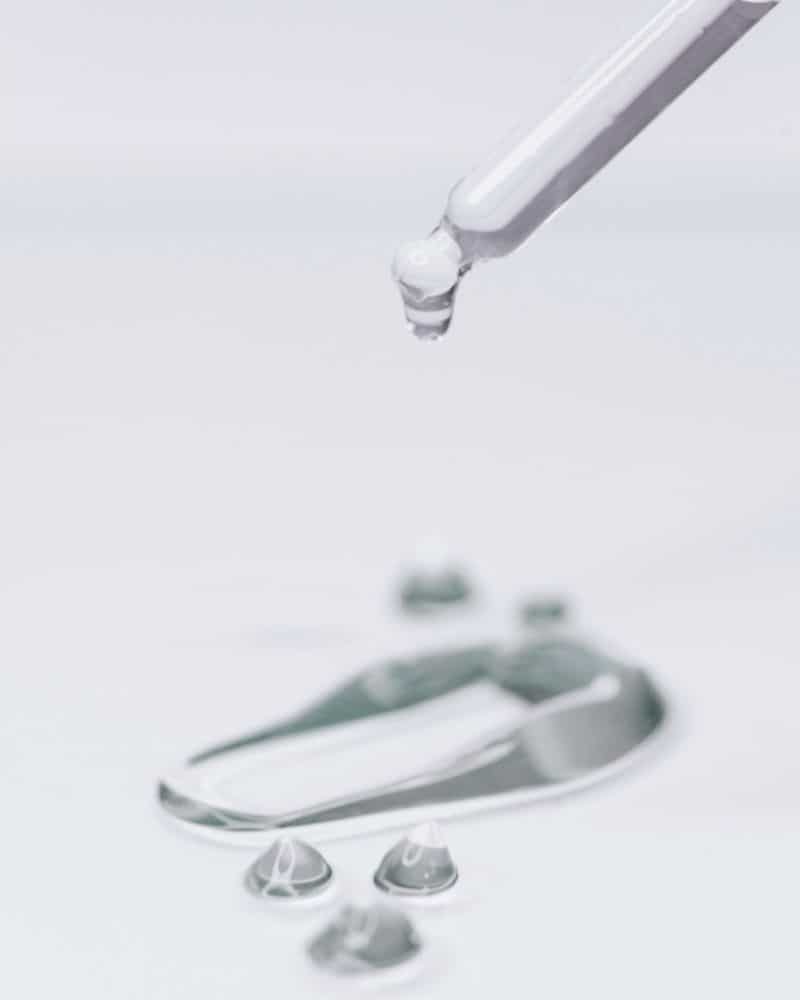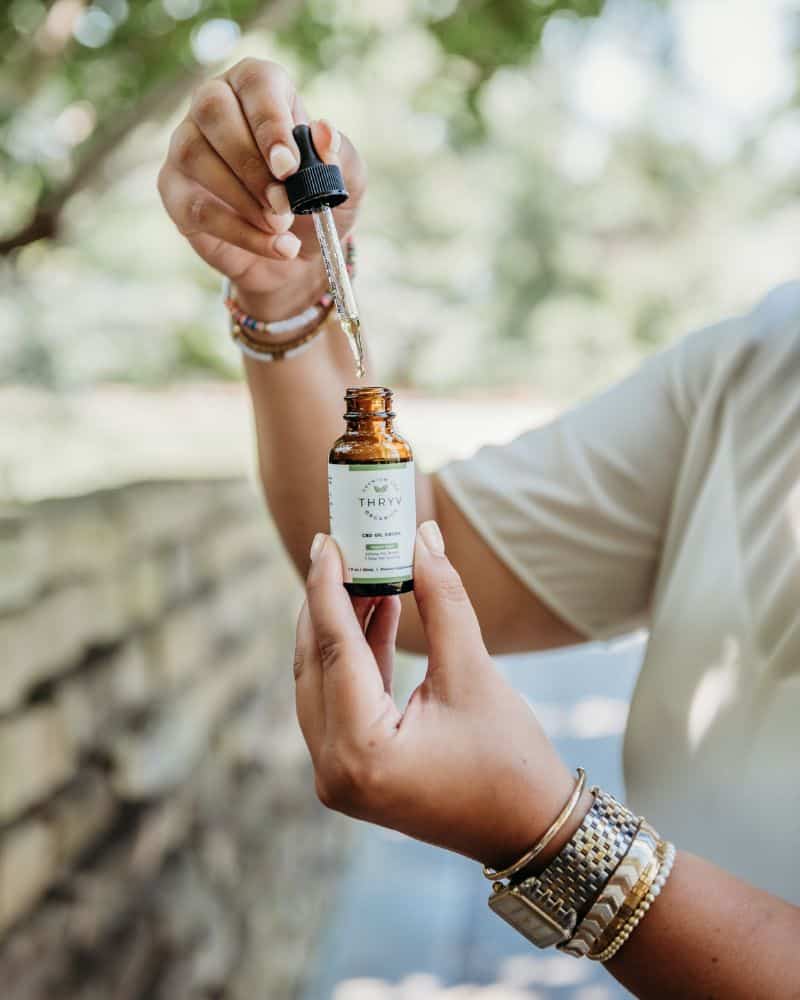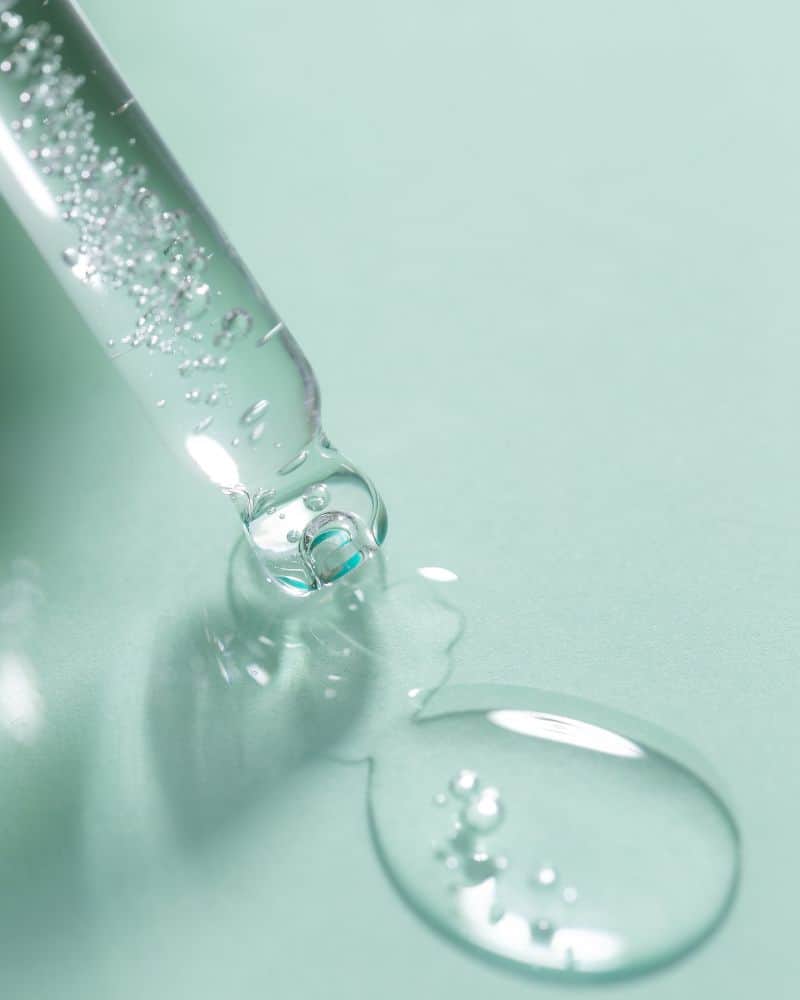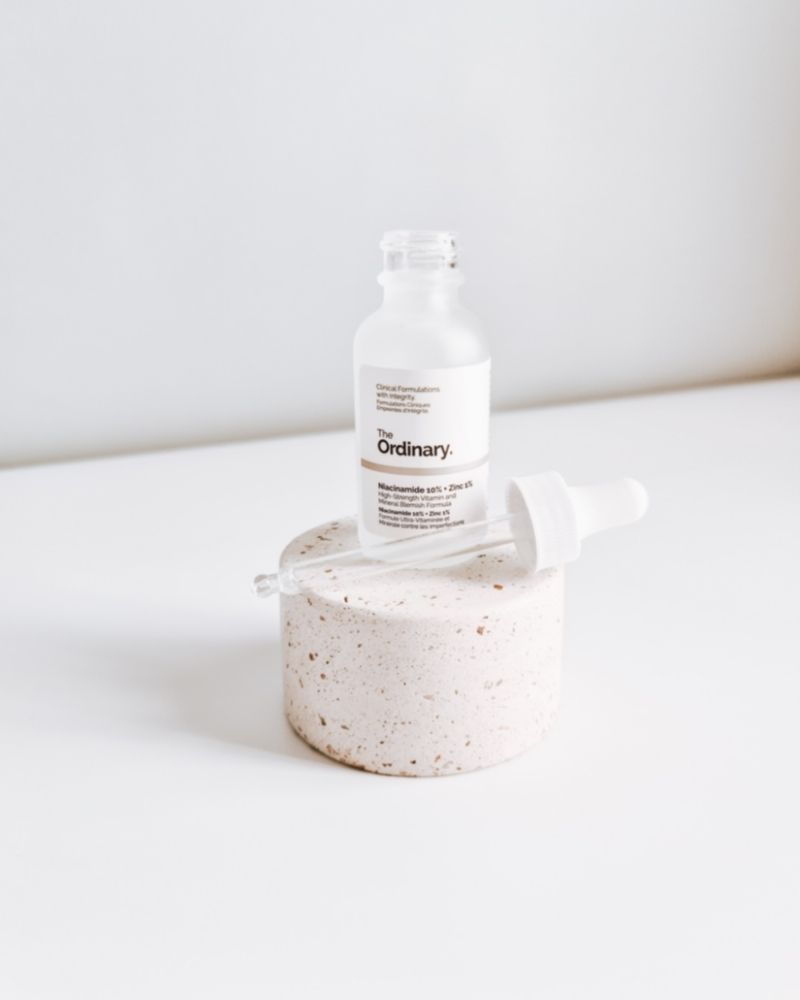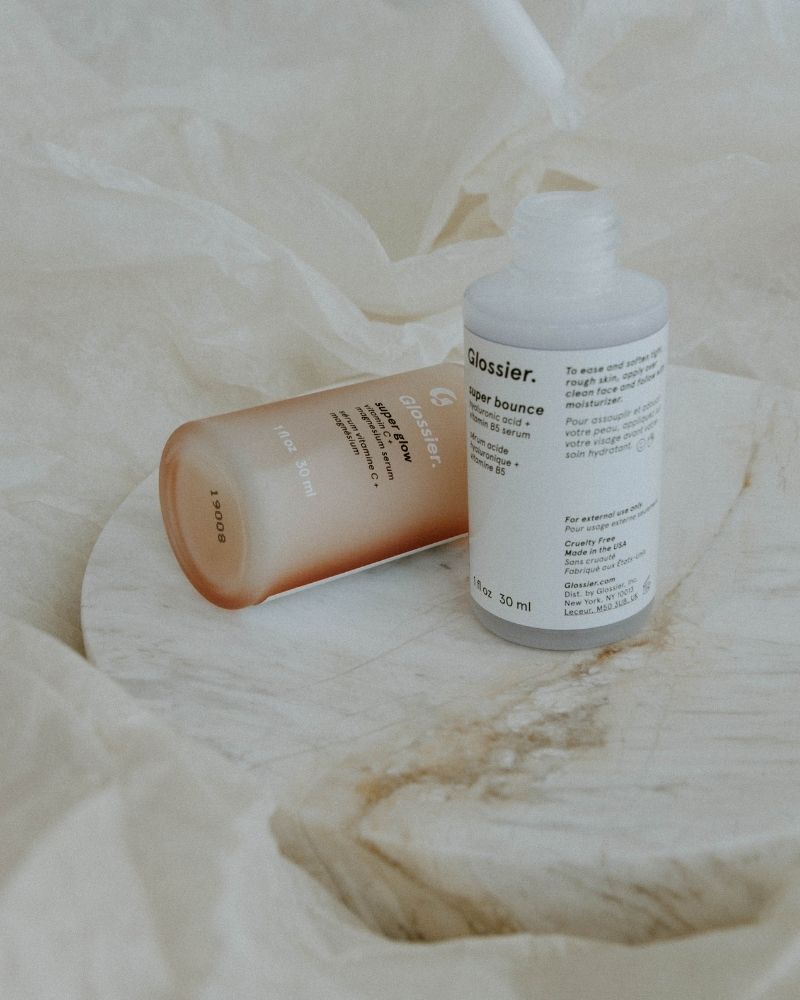Alpha Arbutin Vs. Vitamin C- What’s the Difference?
This post may contain affiliate links.
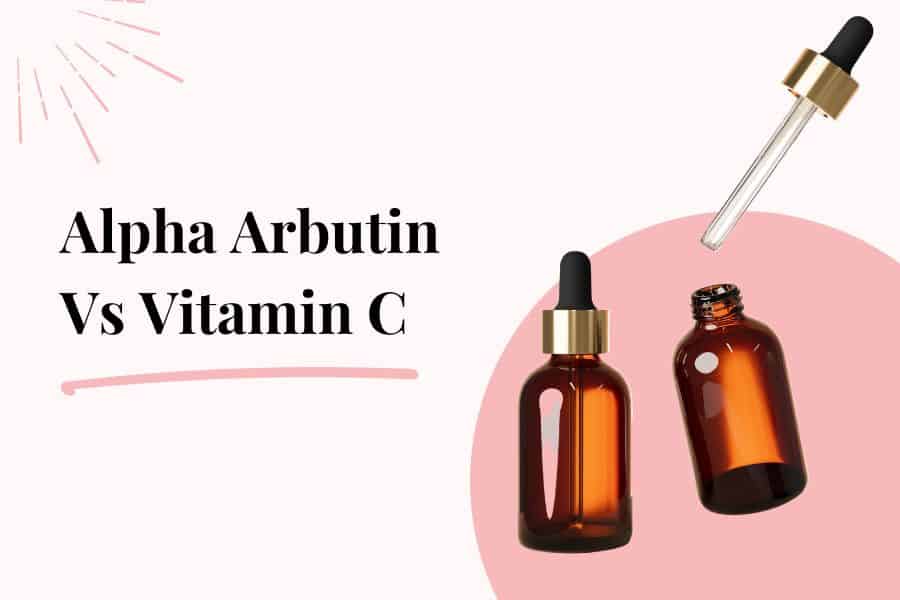
If you’re struggling with hyperpigmentation, dark spots or acne scars, you might be wondering which skincare ingredient will be most effective in treating your dark spots and brightening your skin. In this blog post, we’ll be comparing two of the most popular brightening ingredients: alpha arbutin and vitamin C. These two superstar ingredients work in different ways to brighten and even out skin tone, but they each have their unique benefits. So let’s take a look at Alpha Arbutin Vs Vitamin C to see which one will be the best option for you and your skincare routine.
What Is Alpha Arbutin?
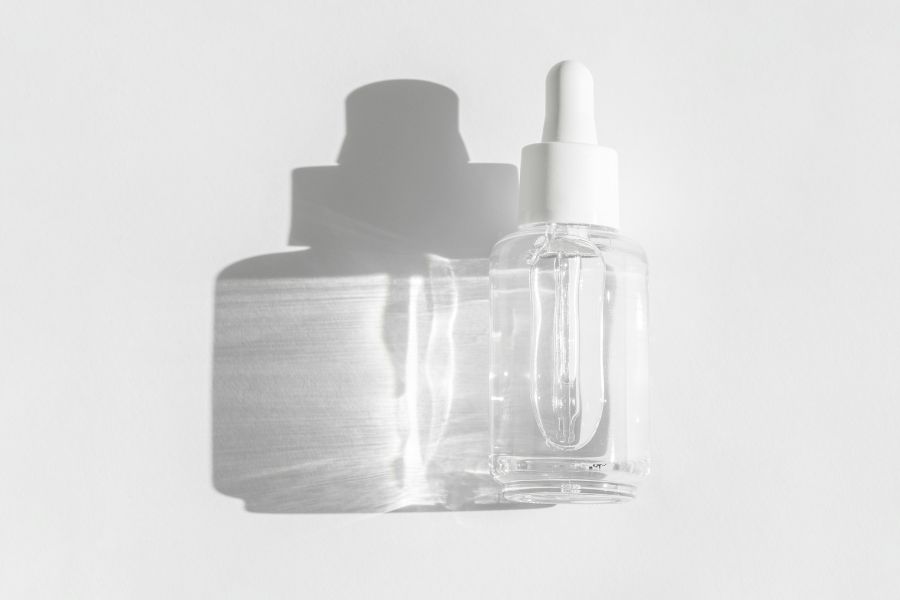
Alpha Arbutin is a natural compound derived from bearberry, cranberry and blueberry plants.
It’s actually a derivative of the powerful lightening agent hydroquinone, which means it can be extremely effective at lightening the skin and fading hyperpigmentation.
In fact, many prefer Alpha Arbutin to hydroquinone, the chemical compound in skin care products for hyperpigmentation because it’s safer, gentler and very effective.
Alpha arbutin reduces hyperpigmentation and dark spots by inhibiting melanin production. It by blocks the activity of tyrosinase, an enzyme that’s responsible for triggering melanin production.
Alpha arbutin is often used in products that are meant to treat hyperpigmentation, dark spots, and uneven skin tone. It’s considered to be much safer and more gentle than hydroquinone, making it a good choice for those with sensitive skin.
Alpha arbutin is considered to be more stable and less irritating than other forms of arbutin, making it a popular choice for skin care products
How Alpha Arbutin works
Alpha Arbutin works by binding with Tyrosinase, melanin-producing amino acid, and blocking its production. Alpha Arbutin is effective because it has a similar compound to a natural enzyme in the body known as Tyrosine, which binds naturally with Tyrosinase.
Benefits of Alpha Arbutin
- Fades hyperpigmentation – Alpha arbutin is one of the best OTC ingredients for fading dark spots, acne scars and hyperpigmentation. It helps to lighten the skin, similarly to hydroquinone.
- Prevents hyperpigmentation – Alpha arbutin can also help to prevent the formation of new dark spots and hyperpigmentation by preventing melanin production, which is what causes hyperpigmentation
- Evens skin tone – Alpha arbutin can help to even out the skin tone by lightening dark spots and hyperpigmentation. If you have uneven skin tone from sun spots, hyperpigmentation or any other kind of pigment, alpha arbutin is a great ingredient to even out those pesky dark spots
- Promotes wound healing – Alpha arbutin promotes wound healing by up-regulating growth factors to help speed up healing
- Brightens skin – Alpha arbutin is one of the most gentle skin brighteners available OTC. It can help to brighten the skin and give it a more radiant appearance
- Gentle – Alpha arbutin is much gentler than other lightening agents like hydroquinone, making it a good choice for those with sensitive skin
Related post: Alpha Arbutin Vs Azelaic Acid
What Is Vitamin C?
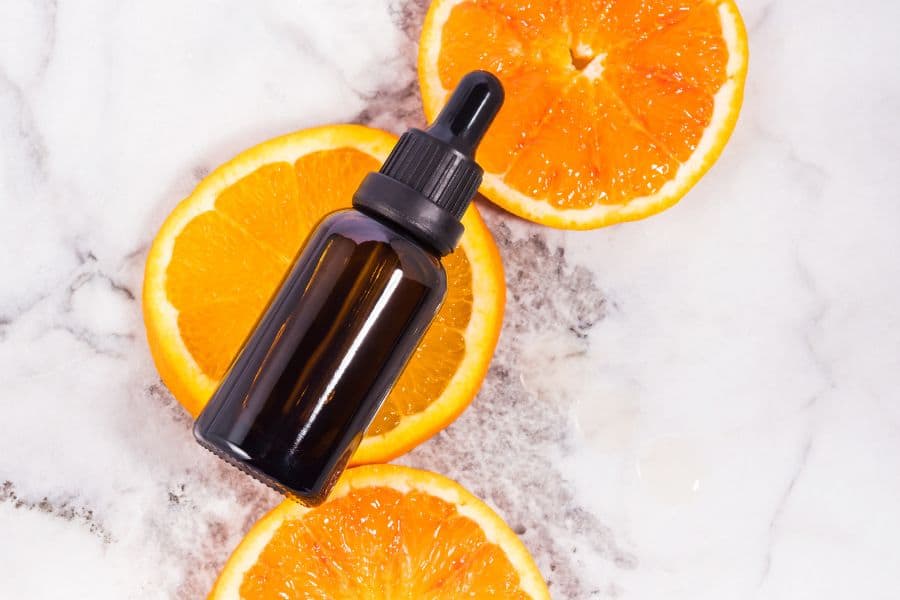
Vitamin C is a tried-and-trusted ingredient that you often find in topical skin care. It is best known for its antioxidant properties and can be used to treat hyperpigmentation.
Vitamin C is a naturally occurring ingredient in many vegetables and fruits. Most notably, Vitamin C is from citric fruits like oranges and lemons and vegetables like Broccoli and Brussel Sprouts.
We can absorb vitamin c from the foods we eat, but the best results are seen when vitamin c is used topically. It’s known to even out skin tone, brighten skin, fade hyperpigmentation and even help to reduce fine lines and wrinkles.
Unfortunately, the vitamin c extracted from fruits and vegetables tend to be unstable, which is why the vitamin c found in our skincare is man-made, which makes it more effective and more stable.
The vitamin C molecule is highly unstable, so you might find products with this nutrient that need to be kept away from the sun to keep the product from oxidizing. However, more stable variations of it have been created in recent years which is good news for our skin!
There are many different types of vitamin c available – from the strongest (l-abscorbic acid) to the gentler forms (ascorbyl glucoside). The stronger the form, the more potent it is, but it can also be more irritating. If you have sensitive skin, start with a gentler variation and work your way up.
A quality product that contains enough vitamin C will even out your complexion and fade dark spots while stimulating collagen production. This will give the appearance of tighter, more youthful skin.
How Vitamin C works
Vitamin C works by blocking Tyrosinase, the enzyme responsible for melanin production that causes hyperpigmentation. The compound interacts with copper ions on Tyrosinase, reducing melanin production.
It is effective at repairing the skin and any damage it may have from UV and can help with hyperpigmentation when used correctly. Additionally, it helps repair wounds and promotes healing when applied directly to sores or cuts. This is all thanks to the nourishing antioxidant properties found in Vitamin C.
Benefits of Vitamin C
- Stimulates collagen – one of the biggest benefits of topical Vitamin C is that it helps to stimulate collagen production which is a critical component in skin’s structure and is involved in keeping skin firm, bouncy and youthful. As we age, collagen production slows, which leads to sagging skin, loss of elasticity and lines and wrinkles. Keeping collagen production stimulated can help to reduce signs of aging and keep skin looking youthful, firm and glowing
- Protects Against Damage – Vitamin C is one of the most potent antioxidants, which means it can help defend skin against environmental and UBV damage as well as help repair the skin after damage has been done. Vitamin C helps to neutralize free radicals before they cause skin and cellular damage (which can lead to premature aging)
- Fades Hyperpigmentation – Vitamin C is also incredible at fading hyperpigmentation. You know that zit you popped and now it’s left a brown spot that’s somehow even worse? Yeah, Vitamin C can tackle that! Plus it can also help with sunspots, acne scarring and any other form of skin pigmentation
- Minimizes lines and wrinkles – Vitamin C can smooth the skin texture which helps to diminish fine lines and wrinkles. Overtime, as it stimulates collagen production, fine lines and wrinkles will be “filled in” and skin will look more plump and youthful. Additionally, since it protects the skin from photoaging, it keeps those lines and wrinkles from deepening
- Evens skin tone – Vitamin C is known for its skin lightening properties, which means not only can it fade hyperpigmentation, but it can also reduce sun spots, freckles and other pigmentation issues
- Smooths texture – Vitamin C is acidic, which means it can help exfoliate the skin. Regular exfoliation can reduce rough skin texture and flaky skin. It can also help reduce pore size and give an overall healthier appearance to the skin
- Speeds healing – Since Vitamin C stimulates collagen production, it can help to heal wounds and speed up healing of any injuries. Vitamin C is known for being involved in the initiation of the immune response and tissue repair response when the skin is injured. This can mean healing from a scrape or even acne
- Anti-inflammatory – One of the lesser known benefits of Vitamin C is that it’s an anti-inflammatory agent. This means it can help reduce any inflammation in the skin from damage, infection (like acne) or other skin conditions like dermatitis or eczema
- Makes skin glow – Vitamin C has been shown to significantly improve skin’s radiance.
Related post: Azelaic Acid And Vitamin C
Differences Between Vitamin C And Alpha Arbutin
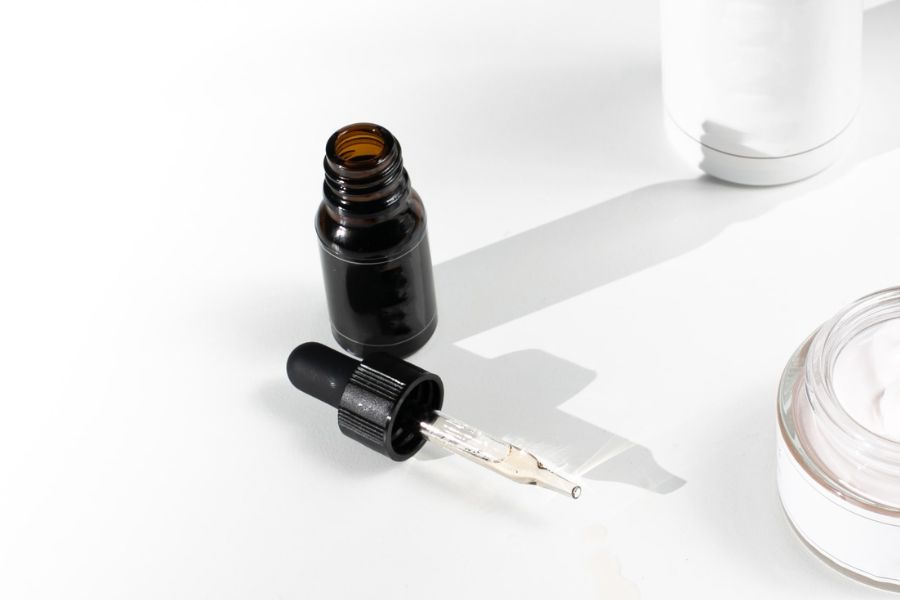
While Vitamin C and Alpha Arbutin may sound like they do the same thing, they work differently to combat hyperpigmentation and brighten the skin.
Additionally, alpha arbutin is more gentle on the skin and doesn’t cause sensitivity or irritation like Vitamin C can. It also tends to be more effective at lightening pigmentation and spots on darker skin tones, making it
Vitamin C provides more overall skin benefits such as stimulating collagen production and protecting against damage, while alpha arbutin’s main focus is on lightening and brightening the skin. Both can be used together in a skincare routine for maximum benefits.
In the battle of alpha arbutin vs vitamin c, vitamin c certainly wins this round. With a good vitamin c serum, you can target many different skin concerns with one product, which is certainly appealing to most people.
Looking at potency, Alpha Arbutin packs more punch, with differences noticed using only concentrations of 2%. On the other hand, Vitamin C needs about a 10%-20% concentration.
There are also many different varieties of vitamin c, such as L-Ascorbic Acid, Magnesium Ascorbyl Phosphate, and Ascorbyl Glucoside, each with their own unique benefits and characteristics. Some are stronger than others, while others are more stable versions.
Alpha arbutin is much more stable than vitamin c, making it less likely to oxidize and lose its effectiveness. Most forms of vitamin c are very unstable and need to be stored in dark, air tight containers to avoid oxidization. Types like L-ascorbic acid are notorious for being unstable, so it’s important to pay attention to packaging and storage when using them. They can oftentimes go bad before you even finish using them, which can be a waste.
However, there are more stable versions of vitamin c, but they aren’t as potent or effective.
Overall, both Vitamin C and Alpha Arbutin can be effective in brightening and fading hyperpigmentation, but they work differently and have their own unique benefits.
In conclusion, both Vitamin C and Alpha Arbutin have their own unique benefits for the skin, but they can also work together for maximum brightening and anti-aging effects.
Alpha Arbutin Vs Vitamin C For Hyperpigmentation & Acne Scars
Both vitamin c and alpha arbutin can help to fade hyperpigmentation, but is one better than the other? One would argue that alpha arbutin has a more targeted effect on hyperpigmentation and is gentler on the skin. However, vitamin c can provide additional benefits such as collagen stimulation and protection from UV damage, which can darken acne scars and hyperpigmentation.
Alpha arbutin is very similar to the powerful bleaching agent hydroquinone, but without the potential negative side effects. Hydroquinone is extremely effective, but it’s so powerful that it’s actually banned in some countries due to concerns about its safety. Alpha arbutin is a safer alternative and oftentimes referred to as a “natural hydroquinone” without all the potential side effects.
While the most potent form of Vitamin C is L-Ascorbic acid, other forms are more gentle and aren’t as effective at treating hyperpigmentation. How effective your vitamin c serum is depends mostly on its formulation. If it’s not formulated right, you risk using an ineffective or potentially irritating product.
That said both ingredients are effective at treating dark spots, acne scars and hyperpigmentation. Vitamin C has been widely studied and known to be effective at brightening the skin, fading dark spots and protecting skin from environmental damage. Studies on alpha arbutin for hyperpigmentation are lacking, but it has been shown to help fade sun spots with a 3% concentration over 4-6 weeks of use.
Can You Use Alpha Arbutin And Vitamin C Together?
Yes, both Alpha Arbutin and Vitamin C can be used together in a skincare routine. In fact, when used together, they make an incredible brightening pair that can fade hyperpigmentation and acne scarring quickly.
How To Use Vitamin C And Alpha Arbutin Together
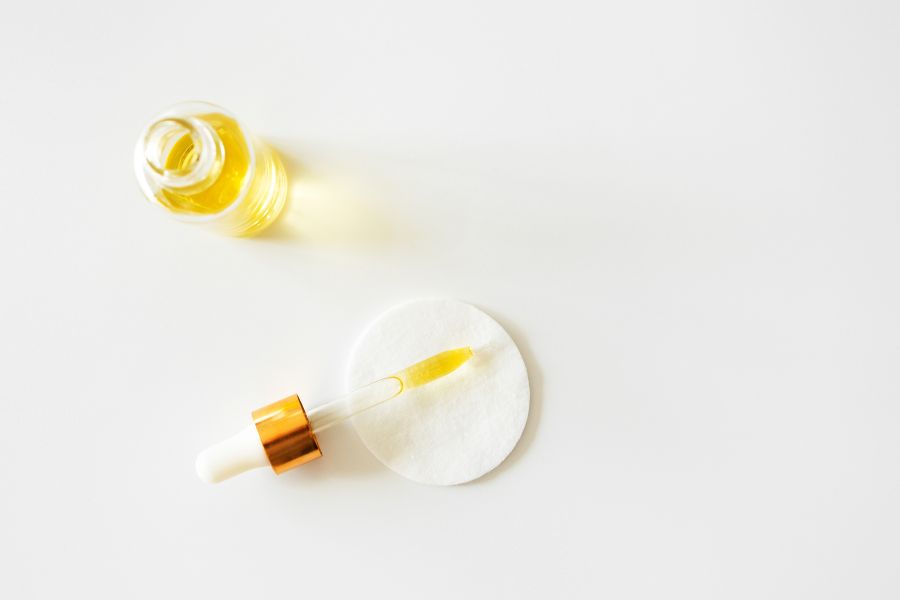
If you’re wanting to mix alpha arbutin and vitamin c together, there are a couple things to keep in mind. It’s recommended to use both vitamin c serums and alpha arbutin serums, since serums are always more potent.
Vitamin C and Alpha Arbutin can be applied together or at different times in your routine. For example, you can safely apply vitamin c and alpha arbutin at the same time in your routine. Or you can use vitamin c in the morning and alpha arbutin at night.
If you’re wanting to layer them together, you’re probably wondering do you use alpha arbutin or vitamin c first? Generally the vitamin c serum will go first, followed by the alpha arbutin serum.
Remember to always follow the thinnest to thickest rule, so apply whichever serum is thinner, followed by the thicker one.
Which Is Better Alpha Arbutin Or Vitamin C Wrap Up
If you’re struggling with dark spots or hyperpigmentation, you might be wondering whether alpha arbutin or vitamin C is the best skincare ingredient for you. Both ingredients are excellent choices for treating hyperpigmentation; however, they each have their own unique benefits. Alpha arbutin is a great choice if you’re looking for an ingredient that will brighten your complexion and fade away dark spots. Vitamin C is a better choice if you’re concerned about both hyperpigmentation and signs of aging. They can also work together for maximum brightening and anti-aging effects. When it comes to alpha arbutin vs vitamin c, both ingredients are effective at treating hyperpigmentation and acne scarring, but vitamin c has a wider range of skin benefits, making it one of the better ingredients.
